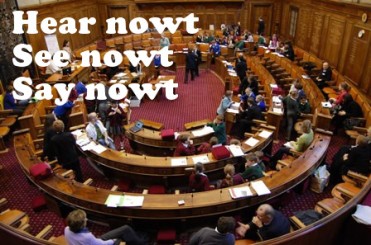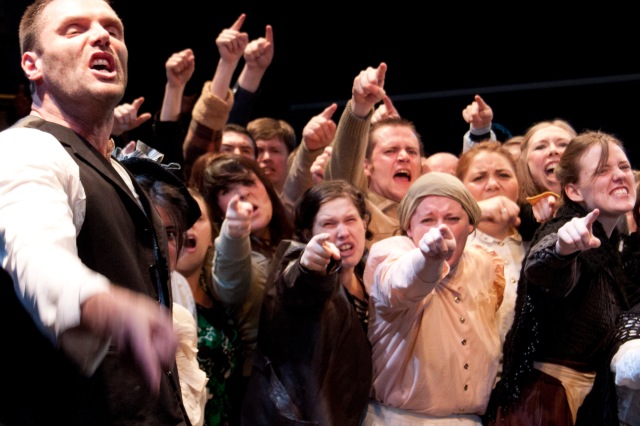(Below is an article that was posted earlier this week on Medium. It has since been removed. In the interests of free speech, I’m re-posting it here, so people who want to read it can. Thanks to @WingsScotland for retrieving it)
xxxxxxxxxxxxxxxxxxxxxxxxxxxxxxxxxxxxxxxxxxxxx
Pronouns are Rohypnol
Barra Kerr
May 26·

There’s a lot of chat around about pronouns right now. Specifically, ‘preferred’ pronouns. By which is usually meant, the pronouns a person would prefer other people to use when they are the subject being discussed by those people.
‘This is how I want you to talk about me’.
Almost without exception, the people who request, or demand, others talk about them using specific pronouns, are asking for pronouns associated with the opposite sex to their own.
A simple politeness. A courtesy.
I’ve heard many people tell me they don’t mind doing this, as a courtesy, although it takes some effort to keep up the mental gymnastics of perceiving one sex, but consistently using pronouns for the other. That’s a personal choice, and I respect the reasons why some people make it.
I’ve also heard many people declaring that anyone who won’t comply (usually directed at a woman) is obnoxious, mean, hostile, and unpleasant. ‘Misgendering’ is hate speech.
They say.
But I refuse to use female pronouns for anyone male.
Because pronouns are like Rohypnol.
One of the biggest obstacles to halting the stampede over women’s rights is pronoun and preferred name ‘courtesy’. People severely underestimate the psychological impact to themselves, and to others, of compliance.
Pronouns are like Rohypnol to your brain’s defences.
You doubt this absurd claim I just made, obviously. You have the fortitude of mind to be uninfluenced by such trivia, and I have got this wrong. I understand. Bear with.
And try this quick experiment.
The cost of USING preferred pronouns yourself:

The Stroop Effect
Have you heard of the STROOP TEST?
Its a well known “name that colour” psychological phenomenon. A quick and simple experiment where you have to say the colour of the words written in front of you. Simple as that. Except the speed and accuracy of your answers is heavily impacted by any incongruence between the colour you see, and the actual word itself.
Try it HERE, if you like fun interactive tests. It takes less than a minute to complete.
Compare the difference in your times between part one and part two of the experiment.
You’ll find you have to consciously fight the conflict of input to your brain each and every time. And it leaves you confused, distracted, slower, frustrated and fatigued.
Forcing our brains to ignore the evidence of our eyes, to ignore a conflict between what we see and know to be true, and what we are expected to say, affects us.
USING preferred pronouns does the same. It alters your attention, your speed of processing, your automaticity. You may find it makes you anxious. You pay less heed to what you want to say, and more to what is expected of you. It slows you down, confuses you, makes you less reactive.
That’s not a good thing.
The cost of HEARING or READING preferred pronouns from others:
Experiment 2.
For a week, re-translate all the transgender articles and comments you find, back to sex-based pronouns, nouns and original names. Rewrite them back to the blunt truth and then read them again. Doing this exercise solely in your mind will do just fine, but editing on a screen is better.
Convert female pronouns back to male; use surnames instead of first names, and convert terms like transwoman back to just ‘man’.
Better yet, if you know the original name of the subject, use it, be it David, or Rhys, or Ashton, or Jonathan.
A rose by any other name would smell as sweet, yes? It shouldn’t matter. No-one else will be hurt or affected by this private experiment. It’s entirely between you, and your own resilient mind.
(Try not to get banned from anywhere during this experiment)
Read your translated version again.
If those small acts of preferred pronoun compliance are truly meaningless concessions,
(although, see above banning potential for contradictory evidence of import) given as a courtesy to others at no cost to you or to other women, then this private exercise will change nothing, cost nothing, affect no-one. You’ll walk away thinking, yep, as I thought, fuss about nothing.

Article extract, corrected to male offender pronouns
After all, nothing *should* change, should it, simply with the alteration of pronouns and names? You already know the actual sex of the subject you’re reading about. Pronouns, male or female, add no incremental information. How can they in any way alter your perception, or influence you when you already know all the facts? They’re an irrelevance, the easiest concession to make. Not worth consideration, inconsequential.
Right?
Cognitively, you should be immune to the effects of such linguistic cross-dressing. Pronouns are irrelevant, so you concede them easily, because they have no power to influence you, since you already see clearly. Yes?
[And you can confess here, it’s OK. You may already think that the minority of women who refuse to comply with pronouns are just awkward buggers, who can’t think strategically, don’t know when to let it go, probably are extremists. Do themselves no favours, damage their own ‘cause’, even. Unreasonable.]
But try the experiment. Translate pronouns and references back to male. Insert ‘dead-names’ or use surnames. (No-one will know but you) Read it a second time. And be honest with yourself.
Do you feel differently, on reading it this way?
Do you react differently?
How’s your anxiety?
Are you angrier?
Do you feel more scared?
Is your sense of injustice alerted?
What level have your natural defences armed to?
You may discover that, despite yourself, you have a viscerally different reaction to what is before your eyes.
Same story, same players, same core knowledge.
Different pronouns, different reaction.
Pronouns are like Rohypnol.
They dull your defences. They change your inhibitions. They’re meant to. You’ve had a lifetime’s experience learning to be alert to ‘him’ and relax to ‘her’. For good reason. This instinctive response keeps you safe. It’s not even a conscious thing. It’s like your hairs standing on end. Your subconscious brain is helping you not get eaten by the sabre tooth tiger that your eyes haven’t noticed yet.

Oscar probably didn’t intend the instinctive female response his words provoked
Incongruent pronouns also make your brain work much harder; not just when you are using them, but when you are receiving them as information. You are working constantly to keep that story straight in your head. Male or female? Which one, again?
Concentrate harder. Ignore your instincts, ignore your reaction.
And that’s just you. You’re already aware of all the pertinent information, already alert, you know the score, no flies on you.
And you’re still affected emotionally and instinctively by incongruent pronouns, nouns, and names. Despite your efforts to be immune. You’re not immune to this effect. You can know perfectly the actual sex of a male person, and yet you will still react differently if someone calls them she instead of he.
So what then, is the impact on everyone who isn’t even aware yet, hasn’t fully comprehended yet what’s going on?
Pronouns are Rohypnol. They change our perception, lower our defences, make us react differently, alter the reality in front of us.
They’re meant to.
They numb us.
They confuse us.
They remove our instinctive safety responses.
They work.
If you do this experiment you may still decide to accept or use female pronouns for male people, perhaps a little wiser, but cognisant of their influence on you and others. That’s a choice you may make. At least now you understand that you may be voluntarily suppressing your own natural response. Your eyes are more open.
Maybe you’ll continue to mentally translate ‘preferred’ pronouns and names in your head back to reality, every time, as I do. We give ourselves the best chance to understand the reality of the situation before us. It becomes easier with practice. I want my instincts as intact as possible.
Maybe you shrug. You can live with this little phenomenon. Or it didn’t work for you, you don’t see it.
But please. Don’t judge so harshly those of us who refuse to submit, refuse to comply with preferred pronouns. There are good reasons why we might be doing that, for our own sakes, and for the sakes of others.
Pronouns are Rohypnol.
I want to be alert. I want others to be alert. I want people to see the real picture, and I want those instinctive reactions that we feel when something is wrong, to be un-blunted, un-dulled by this cheap but effective psychological trick. I feel like I owe this to myself, and I absolutely owe it to other women.
And more than anything, I owe this to girls. I don’t want to play even the tiniest part in grooming them to disregard their natural protective instincts. Those instincts are there for a reason. To keep them safe. They need those instincts intact, and sharp.
And that’s why I won’t use preferred pronouns.
Using Rohypnol on others isn’t a courtesy.

 It’s three weeks since Leeds City Council controversially cancelled a room booking made by Woman’s Place UK, a group set up to campaign to ensure women’s voices are heard in the debate around proposals to change the Gender Recognition Act.
It’s three weeks since Leeds City Council controversially cancelled a room booking made by Woman’s Place UK, a group set up to campaign to ensure women’s voices are heard in the debate around proposals to change the Gender Recognition Act. Justifying the decision to cancel the event, the council said it had received a “number of complaints from people concerned about the alleged use of controversial and potentially discriminatory language” used at other WPUK meetings. “We would not want to provide a platform for those using hate speech or expressing views which are transphobic.”
Justifying the decision to cancel the event, the council said it had received a “number of complaints from people concerned about the alleged use of controversial and potentially discriminatory language” used at other WPUK meetings. “We would not want to provide a platform for those using hate speech or expressing views which are transphobic.” If Leeds council is genuinely convinced (and sadly it appears to be) that what gets said at meetings of the WPUK is hate speech, where did that conviction come from? Here’s a possible simplistic explanation.
If Leeds council is genuinely convinced (and sadly it appears to be) that what gets said at meetings of the WPUK is hate speech, where did that conviction come from? Here’s a possible simplistic explanation. If Stonewall is fighting for it, it must be right. Stonewall has always been on the right side of history. Whatever Stonewall says, goes. Or, as Stonewall recently put it: “What we say is true. Get over it.”
If Stonewall is fighting for it, it must be right. Stonewall has always been on the right side of history. Whatever Stonewall says, goes. Or, as Stonewall recently put it: “What we say is true. Get over it.”








 Carillion were
Carillion were  The West Yorkshire Combined Authority’s head of policy, strategy and communications, Rob Norreys, is leaving the organisation at the end of the month. Given the fact that Mr Norreys (effectively the organisation’s number two) has been leading the region’s efforts to secure funding and powers from central government, it’s a blow for the organisation.
The West Yorkshire Combined Authority’s head of policy, strategy and communications, Rob Norreys, is leaving the organisation at the end of the month. Given the fact that Mr Norreys (effectively the organisation’s number two) has been leading the region’s efforts to secure funding and powers from central government, it’s a blow for the organisation. Labour’s East Leeds MP Richard Burgon has called on council leaders in Leeds to postpone a decision to go ahead with building a new free school on the Fearnville playing fields off Oakwood Lane. Senior councillors in the Labour-run administration are scheduled to kick-start the lengthy process of setting up the school tomorrow (13th December).
Labour’s East Leeds MP Richard Burgon has called on council leaders in Leeds to postpone a decision to go ahead with building a new free school on the Fearnville playing fields off Oakwood Lane. Senior councillors in the Labour-run administration are scheduled to kick-start the lengthy process of setting up the school tomorrow (13th December).

Leeds council in a bind over WPUK call for apology. What can it possibly say?
We all make mistakes. And when someone points out our mistake our first instinct is to look for reasons (or excuses) to delay or avoid saying we’re sorry. For an organisation, saying sorry is a risky business: you’ve got to weigh the costs and benefits of a public apology against the costs and benefits of silence.
Which is where Leeds City Council finds itself after receiving a measured, but firm letter from Woman’s Place UK, asking for an apology over the now notorious cancellation of a room booking the group made as part of the national consultation on reform of the Gender Recognition Act.
The WPUK has had a chance to look at the council’s reasons/excuses for the cancellation and believes that, to put it mildly, they just don’t stack up.
A frenetic chain of internal council emails (now published under FOI) shows how those reasons/excuses evolved and were refined over three days until an acceptable (to the council) version of events was finally confected. (Give it a read: it’s a fascinating glimpse into the workings of council crisis management)
So, the WPUK wants the council to apologise for what it describes as its “shameful behaviour” over the cancellation.
Which puts the council in a serious bind.
It could, in response, stick to its version of events (a version which WPUK says is “false”), but it would have to be confident that anything it does say now may be used as evidence in a court of law, should matters get that far (see below).
Or it could apologise. But for what?
Here’s what it could apologise for (plus a mark out of 10 for whether it’s likely to say it).
ADMINISTRATIVE ERROR
When he first announced the cancellation in an internal email, Chief executive Tom Riordan said he was doing so because the meeting room had been booked “under false pretences”.
Not so, say WPUK: the organisation had liaised with council staff over security and other arrangements, and a number of councillors knew about the event, including one who was acting as the event sponsor (who, curiously, has not spoken publicly of her role since the row broke out).
The council could now say: “We’re sorry that there was a breakdown of internal communication at the council over arrangements for the meeting. We’ll try and improve our systems.”
Chances of the council saying this: 6/10
BAD MANNERS
WPUK says the council has not “had the courtesy to send us a formal, written cancellation or explanation”.
The council could now say: “We are sorry for the lack of formal notification or explanation of our decision. It must have seemed rude and was an oversight in the heat of the moment.”
Chances of the council saying this: 6/10
TAKING ALLEGATIONS ABOUT WPUK AT FACE VALUE
At the heart of WPUK’s complaint is that the council’s actions were prompted by an email to council leaders (on the day the meeting was to be held) from a Leeds Labour councillor, an email which contained serious allegations about WPUK and described the planned meeting as a “hate rally”.
As WPUK points out in its letter, no evidence has been made available to show that the council checked whether these allegations were true. Quite the opposite. As an initial public statement from Council leader Judith Blake shows, these and other allegations were taken at face value.
“Since receiving the booking, we have been made aware of further details regarding some of the views which have been raised by this group previously which are not in line with Leeds City Council’s values on gender and equality,” the statement said.
The council could now say in apology: “We are sorry that we failed to check whether the allegations about WPUK made by one of our elected members are true. We’ve now had a look and can see that they aren’t.”
Chances of the council saying this: 0/10 (the council would then have to explain why the allegations were taken at face value, which would expose the influence of a powerful Stonewall lobby within the council)
CLAIMING THE WPUK’S VIEWS ARE NOT IN LINE WITH THE COUNCIL’S VALUES ON GENDER
It’s only a footnote to the above, but the council doesn’t have a policy on gender. So, to claim that WPUK’s views “are not in line with the council’s values on gender” is deeply misleading (and a nice insight into where the council’s collective head is at on the issue).
The council could now say: “We’re sorry we claimed that WPUK’s views are not in line with our values on gender. We’ve checked that too and it turns out we haven’t got a policy on gender.”
Chances of the council saying the above: 6/10
Chances of the council adopting a policy on gender in the foreseeable future: 0/10 (they wouldn’t dare take the risk).
BREACH OF THE RIGHT TO PEACEFUL ASSEMBLY AND OF EQUALITIES LEGISLATION
In its letter, WPUK says the council “has betrayed the right of its own citizens to meet peacefully to discuss a public consultation on legislative changes. Despite its claims to support equality, it has actively discriminated against women, denying them the opportunity to discuss a piece of legislation that directly affects them.”
It adds: “We believe that the council’s cancellation of the booking was in breach both of our right to peaceful assembly and of equalities legislation.”
There is, of course, no way that the council could apologise for the above. It has already publicly denied that it breached equalities legislation and the right to assembly in a response to a post on Leeds online magazine CV.
To do so now would be an admission of guilt that would open it up to legal proceedings.
Could it, however, say in apology? “We’re sorry you feel your right to assembly was breached. That wasn’t our intention. As a token of our good faith, we would be happy for you to arrange another meeting in the Civic Hall.”
Chances of that apology happening: 2/10 (while holding a WPUK meeting on council premises would be seen as an honourable act of conciliation on the council’s part, it would also be taken as a public defeat by the trans activists who campaigned for the booking to be cancelled and by the Stonewall lobby within the council, a perceived defeat which would have national ramifications)
DEFAMATORY ALLEGATIONS
WPUK says three times in its letter that it believes the allegations made against it by the councillor referred to above are defamatory.
I’m no lawyer, but any apology from the council that would satisfy me would have to include it publicly dissociating itself from the allegations.
The council will, of course, be consulting its lawyers as we speak about the implications of a possible suit for defamation being pursued.
So, could the council now add to its apology? “Our lawyers are looking into the allegations made by one of our councillors about your organisation. In the meantime we are sorry we acted on them, we publicly dissociate ourselves from them and apologise for them.”
Chances of that happening: first sentence 10/10, second sentence 0/10 (see Stonewall lobby etc above – unless a defamation suit is pursued)
————————-
The issues around gender self-identity – including the meanings of words like “sex”, “female”, “woman” and “gender” – are inevitably going to end up in the courts. Would a suit for defamation be a good place to start?
The response to WPUK, when it comes, will give us a clearer idea of Leeds council’s appetite to be taken as a test case.